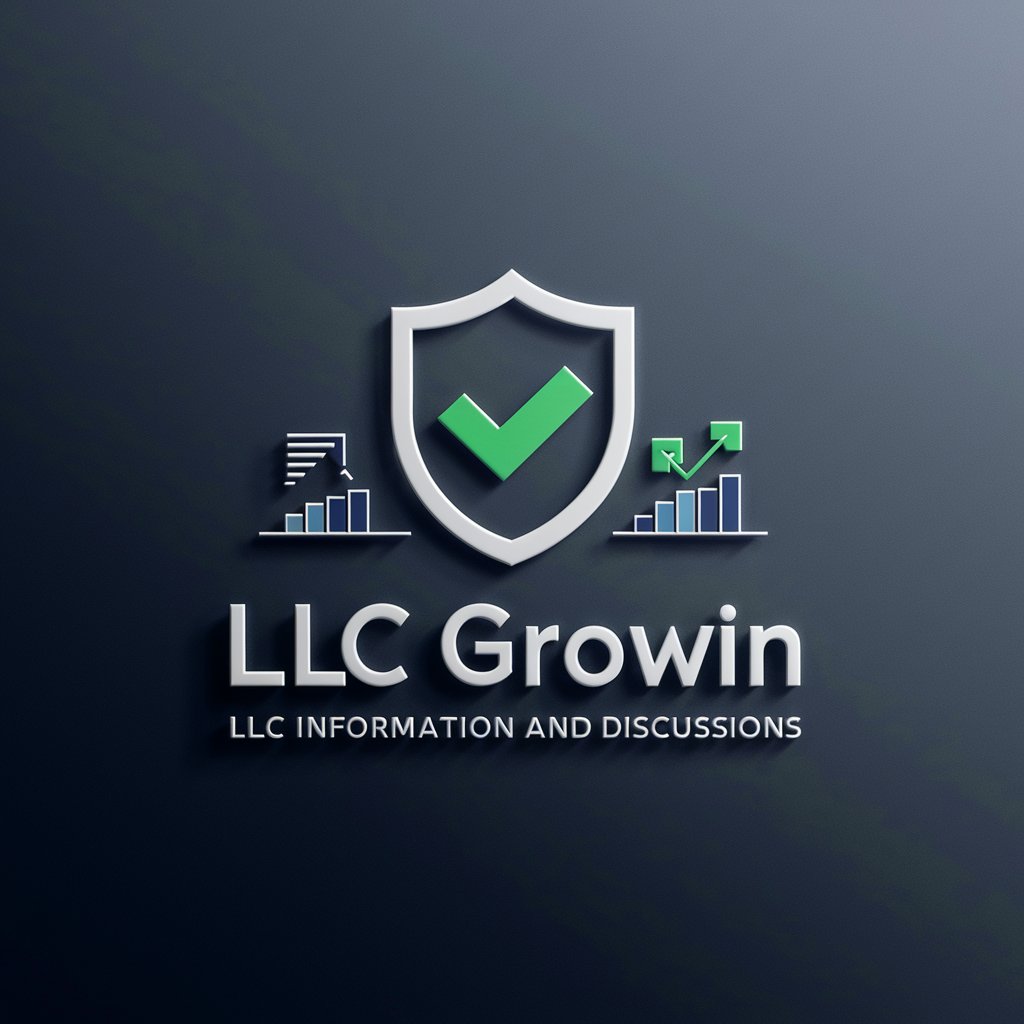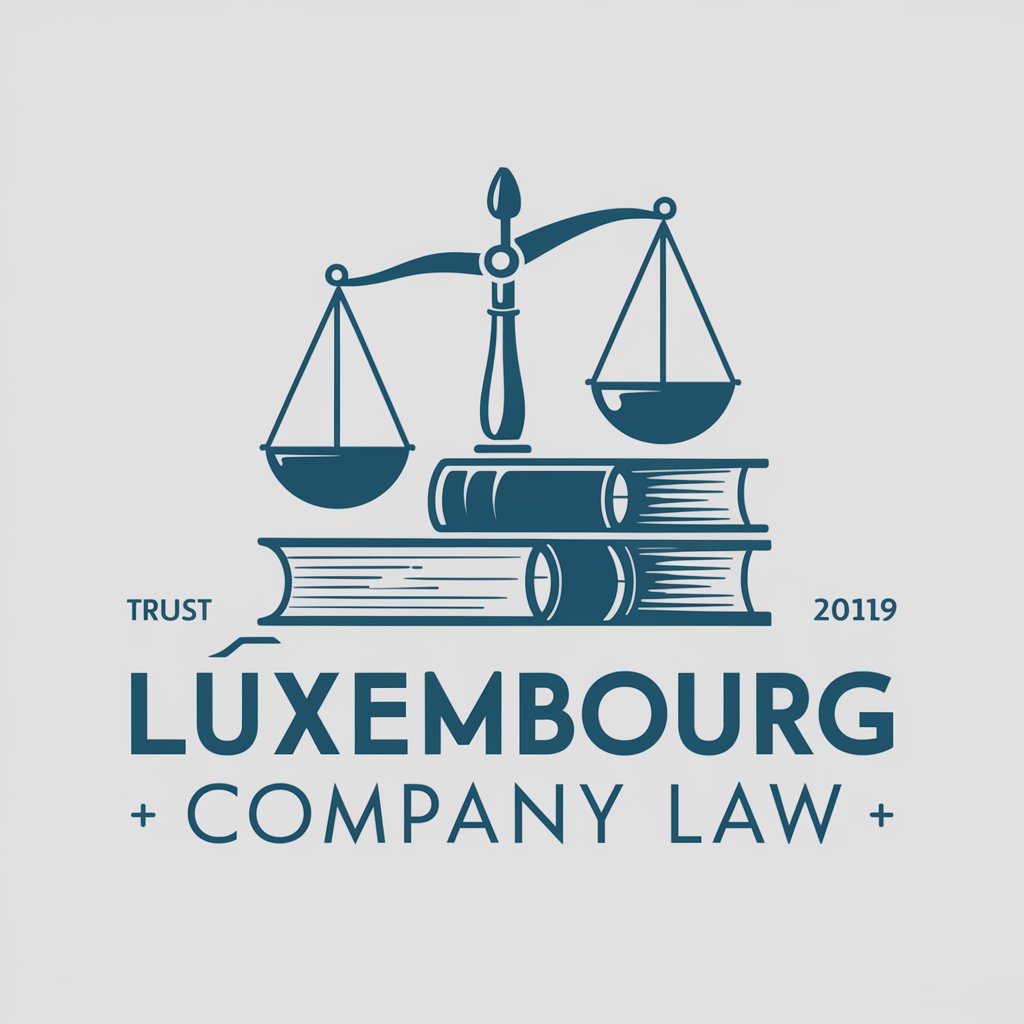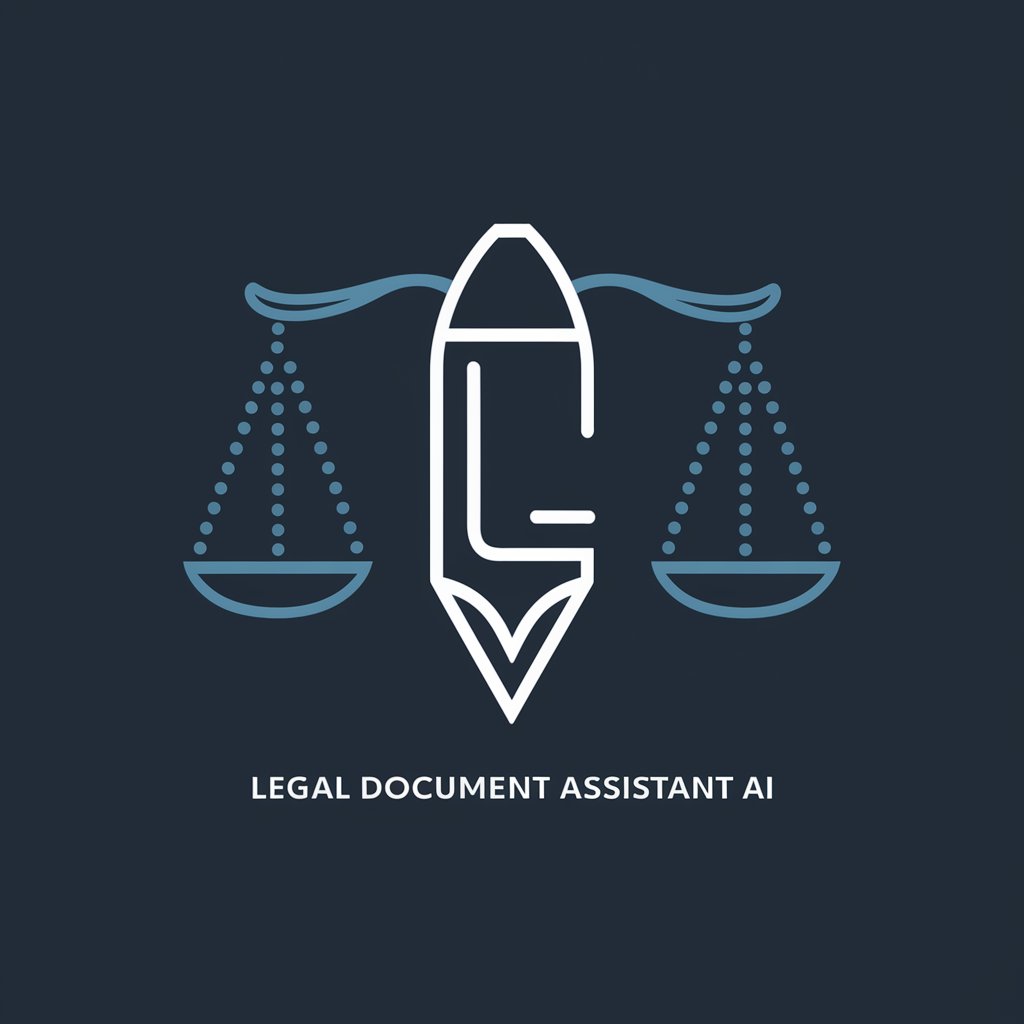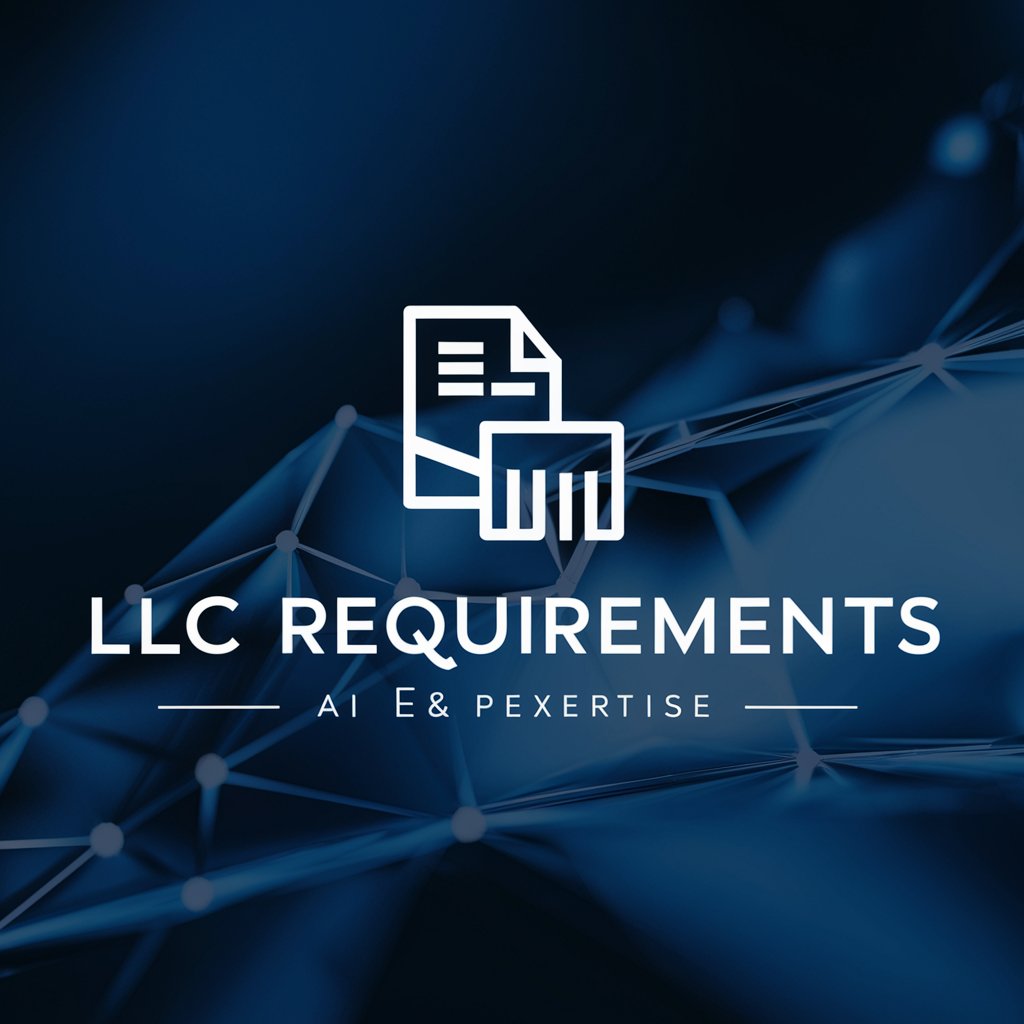
LLC - LLC Management Assistance

Hello! How can I assist you with your LLC questions today?
Empowering your business with AI-driven LLC insights.
What are the key steps to forming an LLC in the United States?
Can you explain the benefits of choosing an LLC over other business structures?
What are the ongoing compliance requirements for maintaining an LLC?
How does the tax treatment differ for LLCs compared to corporations?
Get Embed Code
Overview of Limited Liability Companies (LLCs)
A Limited Liability Company (LLC) is a business structure allowed by state statute that combines the pass-through taxation of a partnership or sole proprietorship with the limited liability of a corporation. This design purpose is to provide business owners with the liability protection that corporations enjoy without the double taxation. Owners of an LLC are called 'members.' Depending on the state, the members can consist of a single individual (one owner), two or more individuals, corporations, or other LLCs. Unlike corporations, which are required to hold annual meetings and keep written minutes, an LLC does not have these requirements, offering more flexibility in management and less paperwork. LLCs can be used for a wide range of businesses, from simple one-person operations to multi-member managed ventures. For example, a freelance graphic designer might form an LLC to protect personal assets from business liabilities, or a group of investors might use an LLC to purchase real estate, benefiting from the LLC's flexible ownership structure and tax treatment. Powered by ChatGPT-4o。

Primary Functions of LLCs
Liability Protection
Example
John's Landscaping, LLC
Scenario
John operates a landscaping business. By forming an LLC, John's personal assets (like his home and car) are protected from business debts and lawsuits against the business. This means if the business is sued for damages caused during landscaping work, only the assets within the LLC can be targeted, not John's personal belongings.
Pass-Through Taxation
Example
Designs by Sarah, LLC
Scenario
Sarah is a freelance web designer who forms an LLC. The LLC doesn't pay corporate taxes. Instead, profits and losses 'pass through' to Sarah's personal tax return, avoiding the double taxation faced by C corporations. This simplifies her tax filing process and potentially lowers her overall tax burden.
Operational Flexibility
Example
Tech Innovations, LLC
Scenario
A group of developers form an LLC for their software development business. The LLC structure allows them to establish a customized management structure, suited to their unique business needs, without the stringent requirements and formalities of a corporation.
Easier Startup and Maintenance
Example
Emma’s Boutique, LLC
Scenario
Emma opens a small boutique and decides to structure it as an LLC because of the ease of startup, with fewer regulations and lower initial costs compared to corporations. The LLC also requires less paperwork and ongoing formalities, making it easier for Emma to focus on growing her business.
Who Benefits from Using LLCs
Entrepreneurs and Small Business Owners
Individuals starting a new business or currently operating a small business can benefit from the LLC's protection of personal assets, its tax advantages, and its flexibility. This makes LLCs ideal for many entrepreneurs across various industries.
Real Estate Investors
Real estate investors often use LLCs to purchase property, as it provides a way to protect personal assets from liabilities associated with property ownership, such as slip and fall accidents. Additionally, the LLC can offer tax benefits and simplify the process of property management and ownership transfer.
Freelancers and Independent Contractors
Freelancers and contractors working in fields like writing, design, consulting, and more can use LLCs to separate their business finances from personal finances, reduce personal liability, and take advantage of pass-through taxation.
Partnerships Seeking Structure
Business partners looking to define their operational and financial arrangements more formally than a general partnership allows can benefit from forming an LLC. It provides them with a framework for managing their business relationship while offering personal liability protection.

How to Utilize LLC Effectively
Initiate Your Experience
Begin by exploring yeschat.ai for a hassle-free trial that requires no sign-up or ChatGPT Plus subscription, ensuring easy access to LLC functionalities.
Identify Your Needs
Assess your specific requirements for using an LLC, whether for business formation, tax planning, or asset protection, to tailor the tool's capabilities to your situation.
Leverage LLC Features
Utilize the LLC's features for drafting operating agreements, managing member roles, and understanding regulatory compliance, maximizing the benefits for your entity.
Consult Legal Resources
Refer to authoritative legal resources or seek professional advice when necessary to ensure your LLC's operations align with current laws and best practices.
Regular Review
Periodically review your LLC's structure and operations to adapt to legal changes, optimize tax strategies, and improve asset protection measures.
Try other advanced and practical GPTs
翻译天才
Transcend Language Barriers with AI

Moving Assistant
Streamline Your Move with AI-Powered Guidance

Eloquent Mentor
Elevate Your Words with AI

Topical Authority Generator for any Website
Empowering Websites with AI-Driven Authority

愛希
Empowering Creativity with AI

林梦研
Empowering Creativity with AI

Homesteading
Empowering Sustainable Homesteading with AI

CANVAEGYPT AI
Elevate Your Style with AI-Powered Fashion Advice

Feeling
Navigating emotions with AI-powered insights.

Prints
Empowering Art Enthusiasts with AI

Ghosts
Unveiling the unseen, one story at a time.

Morgan Bridger
Empowering SOP Excellence with AI

Essential LLC Questions Answered
What is an LLC?
An LLC, or Limited Liability Company, is a business structure in the U.S. that offers personal liability protection and tax flexibility to its owners, known as members.
How does forming an LLC benefit me?
Forming an LLC can protect your personal assets from business debts and claims, offer tax advantages, and provide operational flexibility.
What are the steps to forming an LLC?
Steps include choosing a unique name, filing Articles of Organization with your state, creating an Operating Agreement, obtaining licenses, and meeting tax obligations.
Can an LLC operate in multiple states?
Yes, an LLC can operate in multiple states but must register as a foreign LLC in each state beyond the initial registration state, complying with local laws.
How are LLCs taxed?
LLCs offer tax flexibility; they can be taxed as a sole proprietorship, partnership, or corporation, allowing members to choose the most advantageous tax treatment.





